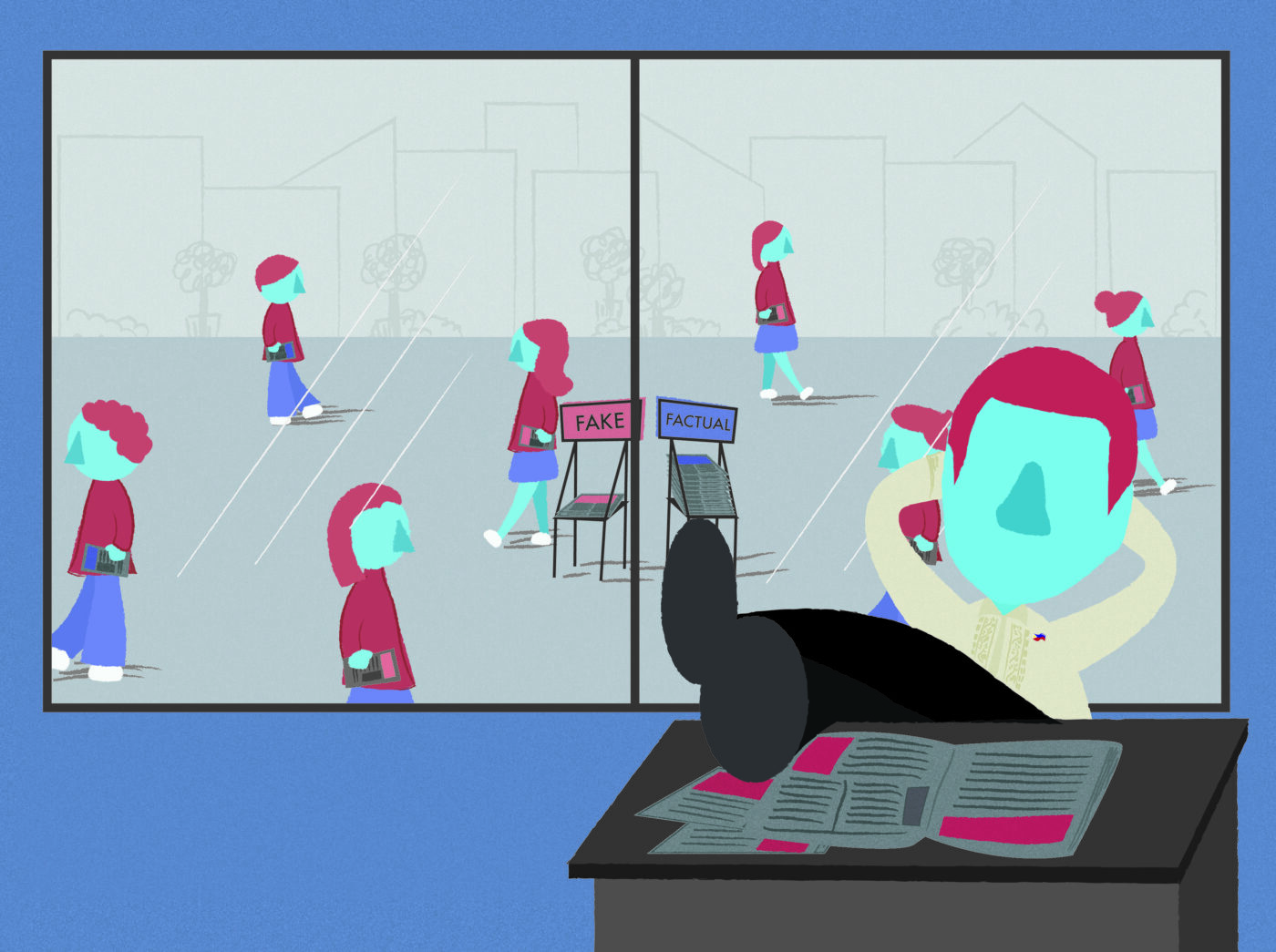IN THE face of public criticism, President Rodrigo Duterte has targeted certain news publications and media organizations on numerous occasions stating that, “When you are a newspaper, you are supposed to be 100-percent Filipino, and yet when you start to pierce their identity, it is fully owned by Americans.” The President was referring to Rappler, an online news platform.
Contrary to the President’s statement, Rappler is not a newspaper and is fully owned by Filipino citizens, but does have Philippine Depositary Receipts that allow foreigners a commercial stake in the company.
Since President Duterte held office, he has fanned the flames of public opinion against his perceived enemies. This is most notable in the media, where there is a polarization between those who choose to support the current administration and those who choose to be more critical.
Media organizations, namely ABS-CBN and the Philippine Daily Inquirer, have been perceived as strident critics of the administration for their alleged “unfair coverage.” In one instance, President Duterte threatened to block the franchise of ABS-CBN, claiming that they did not provide the airtime he had paid for during the 2016 elections. He did not spare Inquirer from his comments, and even said that he would go after the Prieto family over their anomalous property holdings.
The National Union of Journalists of the Philippines (NUJP) blasted the President over the chilling effect of his remarks, saying that it “was not only unwarranted, but absolutely twisted.”
Moreover, the past year has also seen the rise of prominent blogs that have served as ardent defenders of the Duterte administration. Most of these publications are based in social media, and have access to vast majority of social media users. Social media outlets such as the 5 million-follower-strong Mocha Uson Blog often come to the defense of President Duterte and rally his supporters to protect him from those that would criticize him.
These social media outlets have had such a large impact as a pillar of the Duterte administration that even Duterte has propped them up in one way or another. In one instance, he praised Presidential Communications Operations Office (PCOO) Assistant Secretary Mocha Uson, administrator of the aforementioned blog, saying,“There’s nothing wrong with the woman or girl. She’s bright. She’s articulate.”
Social effects
The gap between media and the masses further diminishes as social media serves as both an avenue for information and opinion. Their coexistence has bred a distorted form of information dissemination—one that concerns “post-truth” and disregards responsibility.
Perhaps it is the freedom that comes with posting content for an entire community with a single click that allows threats to the press and trolls to pass.
Early into the Duterte administration, officials were quick to target mainstream media as biased. Accusations of inflated statistics with regards to the government’s aggressive drug war were directed at the likes of Rappler, Reuters, and Inquirer. As journalists gained critical attention, bloggers and social media users have taken to consuming and sharing suspicious news sites.
The conflict has escalated to reach even the legislature, as senators are keen on regulating the proliferation of alternative news sites.
On September 27, Senators Tito Sotto, Manny Pacquiao, Richard Gordon, Cynthia Villar, Miguel Zubiri, Aquilino “Koko” Pimentel, and Gregorio Honasan blasted a post made by the opposition blog Silent No More PH. The blog called out the seven senators who allegedly refused to sign a resolution about government action against the killing of minors.
While the senators claimed that they were not tapped personally by the author Sen. Kiko Pangilinan and his staffers and thus were not able to sign it, e-mails were sent to their respective offices four days before the filing.
The Committee on Public Information and Mass Media, chaired by Sen. Grace Poe, tackled the issue on October 4, inviting bloggers, PCOO officials, and professional journalists.
While there are legal structures in place penalizing the spread of fake news—a law was signed by President Duterte on August 31 that would punish purveyors of fake news with a Php 40,000 to Php 200,000 fine—officials claim it is not enough.
According to Philippine News Agency supervising undersecretary Joel Egco, enforcement of the law is hindered by a lack of clarity as regards the legal definition of “fake news.” Due to this, he claims it becomes difficult for law enforcement agencies to persecute and identify publishers of inaccurate information.
Reaffirming purpose
Moreover, InterAksyon Head Roby Alampay highlighted the self-regulatory nature of journalism, saying that while legislators can control the legal aspects of controlling and assessing information, it is up to the institutions themselves to release information responsibly.
“There has to be accountability and discipline,” he said during the Senate hearing.
Alampay cited the need for finding a way to institutionalize information literacy by educating both journalists and the general public, who are consumers and often providers of content on social media.
The strained relationship among the people, media, and President Duterte has cornered the media into a vacuum of public opinion. With how the relationship of Duterte and the mainstream media is in status quo, it is not surprising that journalists are treading on a rough patch.
However, journalists targeted by the President have shown no signs of backing down. Media practitioners are banding together amidst blistering attacks against their profession and credibility.
“…Your [President Duterte] curses and your threats cannot and will not prevent us, the community of independent Filipino journalists, from fulfilling our duty to inform the people as best we can of what is happening to our country, whether you agree with what we report or not,” wrote the NUJP in March 31.




